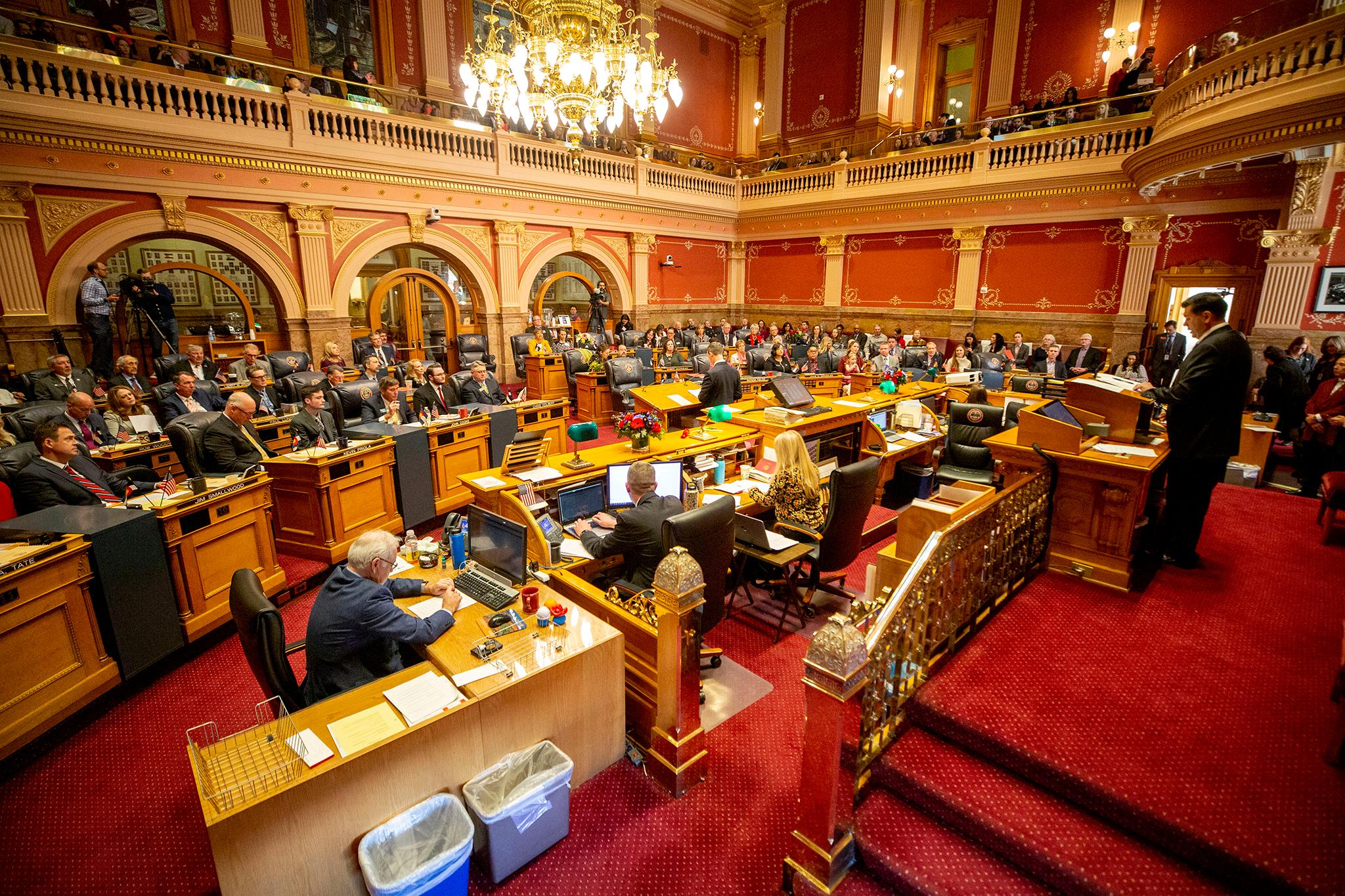
The Colorado legislature received seven workplace harassment complaints between September 2019 and July of this year, according to a newly released report from the Office of Legislative Workplace Relations.
Five of those complaints were addressed informally, one did not fall under the policy’s scope and another resulted in no action at the request of the complainant. The report doesn't identify the subjects of the complaints, or say whether they were made against state lawmakers, staff, aides, interns, lobbyists or others who work in the state capitol building.
The report also notes that six other people raised concerns under a newly created workplace expectations policy. All of those concerns were resolved informally, which does not require the details of any concerns to be released publicly.
The report is the first to be issued under new rules lawmakers approved in 2019. But it did not satisfy some who’ve been active in trying to improve the workplace conditions at the Capitol.
“I don’t think there’s many assurances out there for future or current victims that their complaint will be resolved in a satisfactory manner,” said lobbyist Samantha Walsh, who has spoken about the state Capitol’s at times toxic work culture.
Walsh said she’d like more transparency on whether an accuser felt an informal complaint was handled appropriately. “We need assurances that there’s teeth behind the resolution process. I want to make sure perpetrators have swift rebuke of their behavior whether it’s formal or informal.”
The Capitol’s problem with sexual harassment first became public when Democratic state Sen. Faith Winter of Westminster came forward to KUNC in November 2017 to accuse former Democratic state Rep. Steve Lebsock of sexual harassment. After others also spoke up, legislative leaders launched an outside investigation and House members eventually voted to expel Lebsock from office. The following year Winter sponsored bipartisan legislation to change the process for filing harassment complaints at the Capitol.
“I think we found that it was really important that there was an informal process, that bad behavior was able to be called out without putting yourself through an entire investigation and feeling like you could be retaliated against at any time,” she said.
The legislature’s formal complaint process is different. Basic details of credible workplace harassment investigations against state lawmakers must be released to the public, including the lawmaker’s name. None of the complaints in the new report went through that process. Another major change under the 2019 policy is that legislative leaders no longer handle allegations or determine the consequences for members accused of misconduct in their respective chambers, instead a bipartisan committee of lawmakers would recommend consequences.
“I think it’s a better policy but I would have preferred an independent HR firm to handle complaints to prevent the influence of politics and violations of privacy,” said former legislative staffer Katia Birge. She was the first person to file a workplace harassment complaint against former Republican Senator Randy Baumgardner, which an outside investigator found to be credible.
Democratic state Rep. Susan Lontine of Denver, who alleged that Republican Sen. Larry Crowder harassed her, said she’s open to refining the new harassment policy.
“It’s difficult for me to judge what we’ve never had before,” Lontine said of the new report. “I think it is great that this is public. It does not seem like a lot of complaints filed given the volume of people that work and go through that building, but maybe that’s just because people aren’t comfortable coming forward.”
Since Winter first spoke out, the state legislature has spent about $400,000 dealing with workplace harassment. That figure includes investigations, attorneys fees, and the hiring of an HR person after credible allegations against other state lawmakers also came to light.
“We have a process and complaints are being filed and that’s good. I think we should do another survey to see if the new policy is translating to people feeling safer in the workplace,” said Winter.
A more than 200-page survey from the Denver-based Investigations Law Group in 2018 found that there were systemic cultural and sexual harassment problems at the Colorado state Capitol. Consultants interviewed more than 500 people and while almost everyone felt safe and comfortable, the results showed 30 percent of people either saw or experienced harassment and very few reported it. Another 50 percent of people had observed sexist behavior and/or reported episodes of seriously disrespectful behavior.
Accusers who came forward said they felt vindicated when investigators found their allegations to be credible. But they also described a culture at the Capitol where a handful of lawmakers and others blurred the lines of decency and professionalism, acted inappropriately and made some feel objectified, belittled and even unsafe. To change that, victims of sexual harassment said a system needed to be in place to believe accusers and take their complaints seriously.









